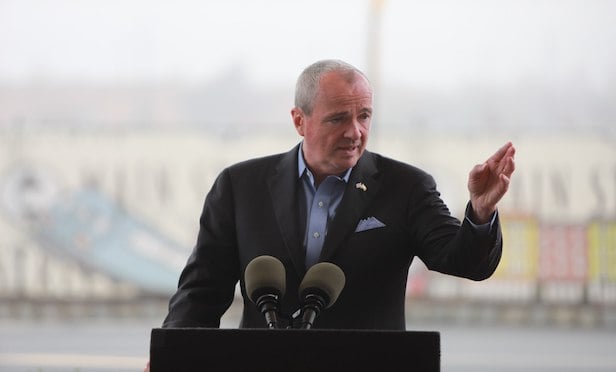GALLOWAY, NJ—New Jersey Gov. Phil Murphy officially unveiled his "Energy Master Plan" on Monday that outlined a host of strategic initiatives geared at achieving his administration's goals of combating climate change and achieving 100% clean energy by 2050.
As part of his plan, the governor signed Executive Order No. 100, directing the Department of Environmental Protection to make sweeping regulatory reforms, branded as "Protecting Against Climate Threats," to reduce emissions and adapt to climate change. With the executive action, state officials note that New Jersey is the first state in the nation to pursue such a comprehensive and aggressive suite of climate change regulations.
"New Jersey faces an imminent threat from climate change, from rising seas that threaten our coastline to high asthma rates in some of our most vulnerable communities due to fossil fuel pollution," said Gov. Murphy.
The Energy Master Plan addresses New Jersey's energy system, including electricity generation, transportation, and buildings, and their associated greenhouse gas emissions and related air pollutants. The Energy Master Plan defines 100% clean energy by 2050 as 100% carbon-neutral electricity generation and maximum electrification of the transportation and building sectors, which are the greatest carbon emission producing sectors in the state, to meet or exceed the GWRA mandates.
The plan outlines seven key strategies and includes an implementation plan that lays out next steps and timelines. In terms of strategies that impact the real estate and building sectors, the plan calls for enacting 0.75% and 2% utility energy efficiency standards for natural gas and electricity, respectively, improving energy efficiency programs in New Jersey, adopting new clean energy and energy efficiency financing mechanisms and strengthening building and energy codes and appliance standards.
Another key strategy involves reducing energy consumption and emissions from the building sector through decarbonization and electrification of new and existing buildings, including the expansion of statewide net zero carbon homes incentive programs, the development of EV-ready and demand response-ready building codes and the establishment of a long-term building decarbonization roadmap.
Other components. of the Energy Master Plan include reducing energy consumption and emissions from the transportation sector, including encouraging electric vehicle adoption, electrifying transportation systems and leveraging technology to reduce emissions and miles traveled.
The plan also includes accelerating the deployment of renewable energy and distributed energy resources by developing offshore wind, community solar, a successor solar incentive program, solar thermal, and energy storage. Other components involve decarbonizing and modernizing New Jersey's energy system; supporting community energy planning and action in underserved communities and expanding the Clean Energy Innovation Economy by expanding upon New Jersey's existing 52,000 clean energy jobs and investing in developing clean energy knowledge, services and products.
"Successfully implementing the strategies outlined in the Energy Master Plan will drastically reduce New Jersey's demand for fossil fuels, reduce our carbon emissions, greatly improve local air quality, and related health impacts. The Energy Master Plan, together with PACT, the most sweeping set of climate regulations in the country, represents a seismic shift in our energy policy," Gov. Murphy said.
In May 2018, Gov. Murphy signed Executive Order No. 28, which directed the New Jersey Board of Public Utilities, in partnership with other state agencies, to develop a statewide clean energy plan and shift away from energy production that contributes to climate change.
© Touchpoint Markets, All Rights Reserved. Request academic re-use from www.copyright.com. All other uses, submit a request to [email protected]. For more inforrmation visit Asset & Logo Licensing.








